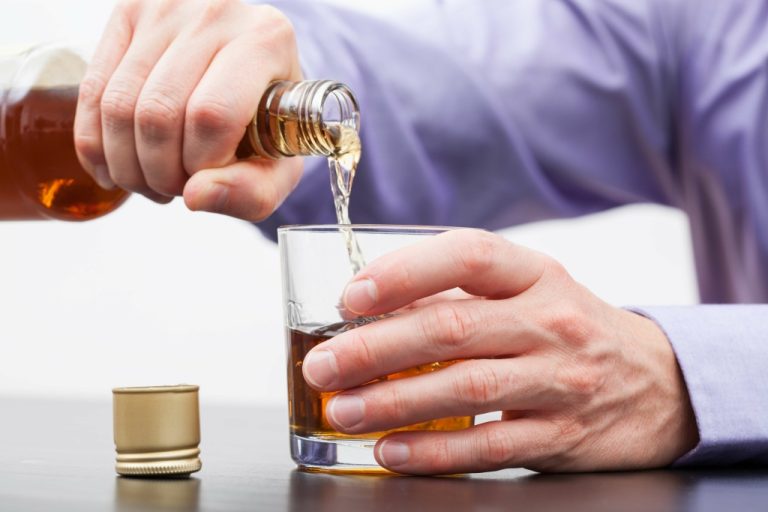Content
The consequences of alcohol poisoning can be aggressive and fatal. Do not try to self-treat the symptoms of alcohol poisoning, as you can cause more harm than good. If you or a loved one are experiencing the signs of alcohol poisoning, act quickly and call 911.
Can a hangover last 4 days?
Fortunately, hangovers typically go away within 24 hours. There are some reports online of them lasting for up to 3 days, but we can't find much evidence to back this up.
River Oaks, an American Addiction Centers alcohol rehab near Tampa, FL, is ready to help you overcome addiction and find long-term recovery. Call us today to learn more about addiction treatment near you. In mild alcoholic hepatitis, liver damage occurs slowly over the course of many years.
Alcoholic hepatitis
If a person is a binge drinker or drinks every day, the risks of developing alcoholism are even greater. If the person is unconscious, breathing fewer than eight times a minute, or has repeated and uncontrolled vomiting, call 911. Even when someone is unconscious or has stopped drinking, alcohol continues to be released into the bloodstream and the level of alcohol in the body continues to rise. Never assume that a person will “sleep off” alcohol poisoning. So it is important that everyone know how to recognize the signs of alcohol poisoning and what to do in that situation. While young adults are likelier to binge drink, middle-aged adults are likelier to die from alcohol poisoning.
Alcohol poisoning occurs when a person has consumed a large amount of alcohol over a short period of time. The effects overwhelm the body, leading to a number of serious symptoms that can be fatal or cause serious brain damage. If you suspect that you, or a loved one, is experiencing symptoms of alcohol poisoning that you seek emergency medical care.
Alcohol Poisoning Signs and Response
When BAC reaches high levels, blackouts (gaps in memory), loss of consciousness (passing out), and death can occur. If you think you or a friend have drunk fake alcohol, you need to seek medical attention. It is common for someone who drank excessive amounts of alcohol to vomit since alcohol is an irritant to the stomach. This article will explain what alcohol poising is, alcohol poisoning symptoms, and how to find a Tampa alcohol rehab if you or a loved one are struggling with alcohol addiction. If excessive alcohol consumption continues, inflammation levels can begin to increase in the liver.
Is 40 drinks a week too much?
To keep health risks from alcohol to a low level if you drink most weeks: men and women are advised not to drink more than 14 units a week on a regular basis. spread your drinking over 3 or more days if you regularly drink as much as 14 units a week.
If a person is showing any signs of alcohol poisoning, don’t let them go to bed. The alcohol will continue to absorb into the bloodstream through the digestive system. This causes the BAC to continue rising long after they stop drinking, making going to sleep while highly intoxicated risky. Alcohol poisoning occurs when there’s too much alcohol in a person’s bloodstream. The only way to fully prevent alcohol poisoning is to avoid using high quantities of alcohol. However, there are some strategies you can use to reduce your risk of alcohol poisoning if you are drinking.
Professional Medical Treatment
Emergency medical technicians will be able to provide immediate treatment and get a person the professional medical assistance they need. Alcohol poisoning occurs when someone consumes large amounts of alcohol that are toxic to the body. The brain begins to shut down involuntary functions that regulate breathing and warning signs of alcohol poisoning heart rate, sometimes resulting in death. The amount of alcohol that causes alcohol poisoning is different for every person. It is not possible to accurately predict for each person what amount will cause them to overdose. Going beyond that is considered binge drinking and puts you at risk of alcohol poisoning.
We provide medically monitored detox for our patients, assisting them through alcohol withdrawal as symptoms can be life-threatening in some instances. Following detox, we offer comprehensive therapy, getting to the issues behind the substance use, leading to healing and wholeness. How to get help for Alcohol Poisoning
Professional medical treatment for alcohol poisoning NO FOLLOW NEW WINDOW is essential. If you or someone you love is experiencing alcohol poisoning, seek emergency attention. Once the crisis is averted, get the kind of help that addresses the issues behind the alcohol consumption; the kind of help that brings healing and recovery. The more alcohol a person drinks, the higher their BAC rises.
Alcohol Use
Over three-quarters of alcohol poisoning deaths occur in people ages 35–64. These early signs may not always mean that alcohol poisoning is developing but should suggest that someone’s blood alcohol content is reaching a level where this can occur. These symptoms should indicate that the person drinking should stop, and those around them should keep a close eye on them, ensuring that more serious symptoms do not develop. Suppose you delay calling 911 or taking a person to the closest emergency room. In that case, this individual could develop a severe brain injury, have a heart attack or stroke, suffer liver damage, and even die. These treatments are vital for overcoming alcohol poisoning.
- For people with alcohol poisoning signs, treatment may include medication to ease symptoms and IV fluids to help with dehydration.
- You have a persistent desire to cut down or stop your alcohol use, but your efforts to quit have been unsuccessful.
- This throws off your electrolyte imbalance which can lead to heart attack and stroke.
- River Oaks, an American Addiction Centers alcohol rehab near Tampa, FL, is ready to help you overcome addiction and find long-term recovery.
- Alcohol poisoning is extremely dangerous and could require emergency medical attention.
- Discovering your child is drinking can generate fear, confusion, and anger in parents.
If things take a turn for the worse, they can quickly respond to an emergency situation. Those problems could include depression, an inability to manage stress, an unresolved trauma from your childhood, or any number of mental health issues. Such problems may become more prominent when you’re no longer using alcohol to cover them up. But you will be in a healthier position to finally address them and seek the help you need. Many drinking problems start when people use alcohol to self-soothe and relieve stress (otherwise known as self-medicating). Getting drunk after every stressful day, for example, or reaching for a bottle every time you have an argument with your spouse or boss.
As you drink more, your blood alcohol content (BAC) level continues to climb. Eventually, it becomes so high that your basic mental, physical and emotional functions are no longer able to work properly. However, a person can feel the effects of alcohol abuse and potentially trigger alcohol poisoning, even after they’ve stopped drinking. Your BAC levels keep increasing for up to 40 minutes after your last drink. There are 2,200 alcohol poisoning deaths in the United States each year. Sometimes alcohol poisoning can be avoided by understanding the symptoms and how to respond to them.
- If you answer yes to one or more of these warning signs, there may be an alcohol problem that needs to be addressed.
- These symptoms can be dangerous, so talk to your doctor if you are a heavy drinker and want to quit.
- Individuals who pass out from acute alcohol poisoning can vomit while unconscious and asphyxiate.
- By keeping you from looking honestly at your behavior and its negative effects, denial also exacerbates alcohol-related problems with work, finances, and relationships.
About three of every four alcohol poisoning deaths affect individuals ages 35 to 64. If someone has signs of alcohol poisoning, they shouldn’t be left alone or expected to sleep it off. People trying https://ecosoberhouse.com/ to help someone with alcohol poisoning should encourage them to stay awake and sit up. If the person becomes unconscious, they should be laid on their side so they won’t choke if they vomit.



